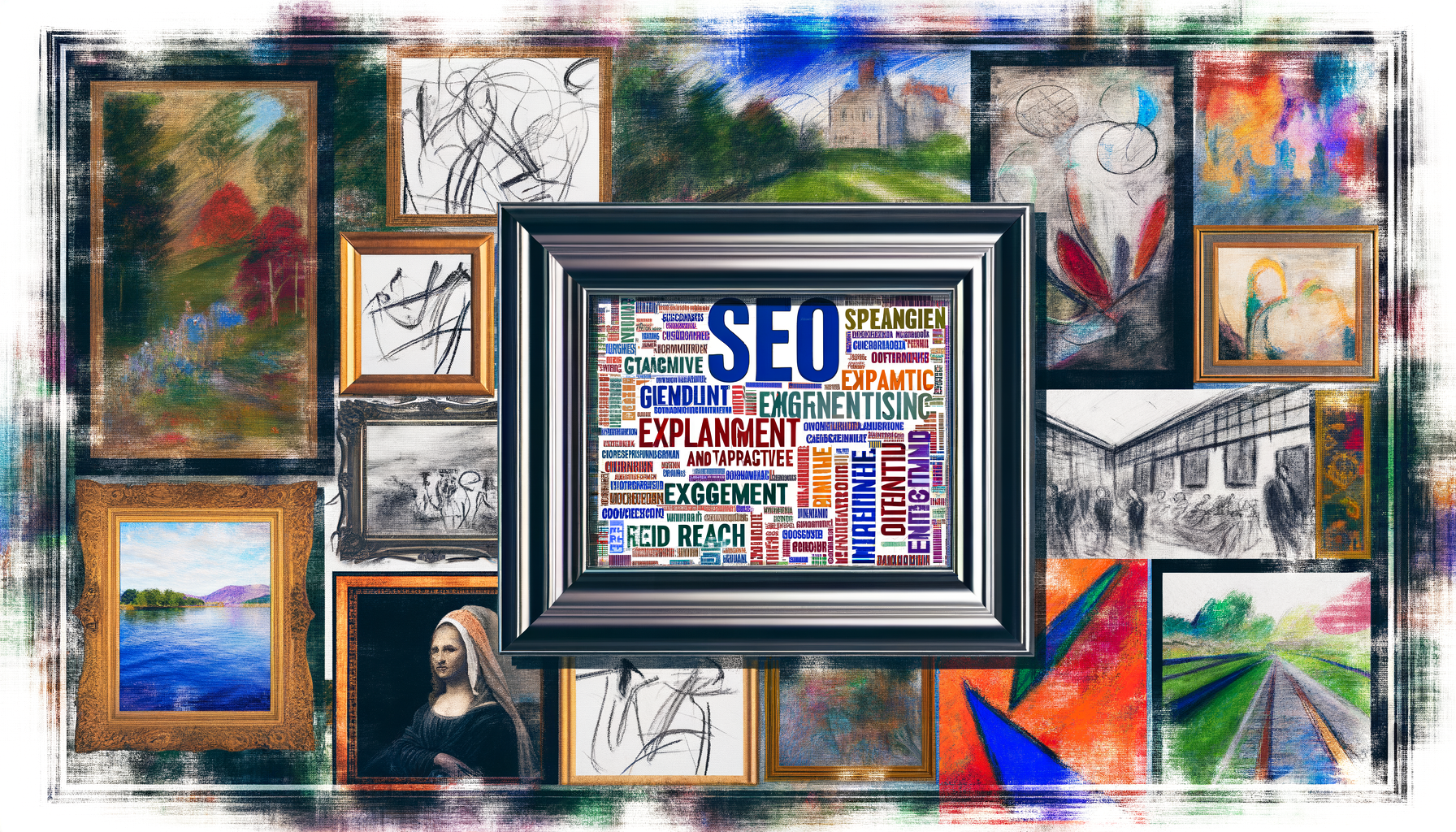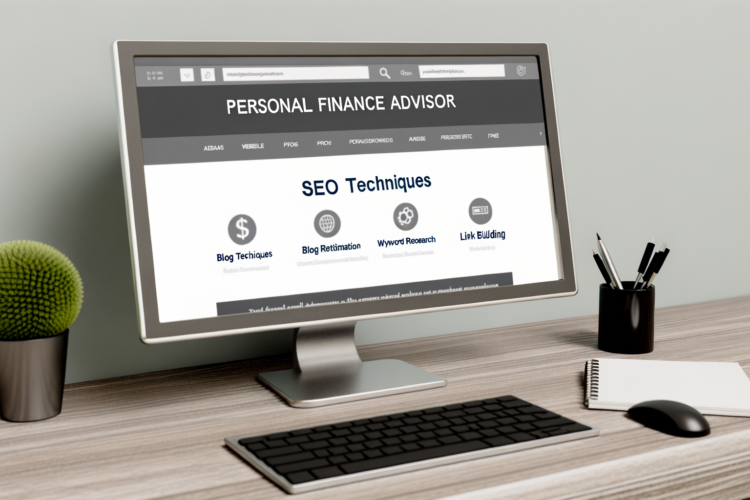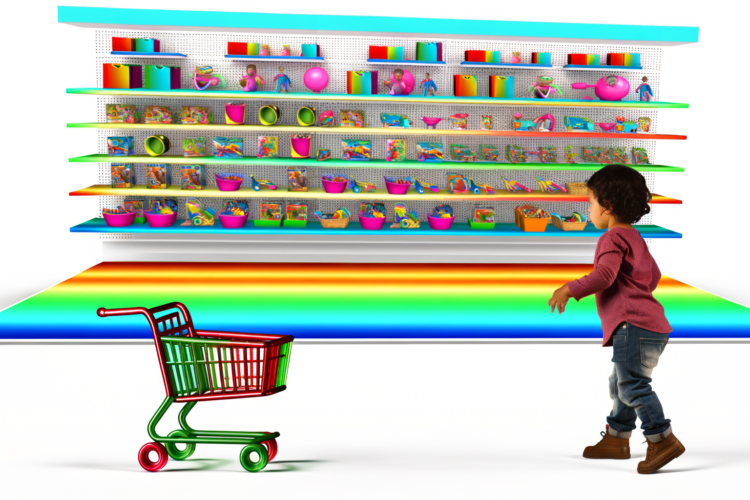
Understanding SEO for Online Art Galleries
To enhance an online art gallery’s reach using Search Engine Optimization, one needs to adapt a comprehensive SEO strategy aimed at improving the gallery’s organic search visibility. This involves optimizing website content, structure, and metadata with relevant keywords, ensuring site usability and mobile-friendliness, building high-quality backlinks, and continually creating engaging, high-quality content targeted at the gallery’s desired audience.
Fundamentals of SEO for Art Galleries
Before diving into the specifics, it’s crucial to understand the basics of how SEO can work for art galleries. SEO, which stands for Search Engine Optimization, comprises various strategies to help websites rank higher in search engine results, thereby increasing organic traffic. For art galleries, this can mean a significant increase in exposure to potential buyers, collectors, and art enthusiasts.
Keyword Research
To get started, conduct thorough keyword research to identify terms that potential visitors might use to find online art galleries. Use tools like Google Keyword Planner, SEMrush, or Ahrefs to discover keywords related to art styles, artists’ names, art movements, and genres. Incorporating these keywords strategically in your website’s content can help search engines understand what your site is about and surface it to the right users.
On-Page Optimization
Once you have your keywords, every element on your website should be scrutinized and optimized. This includes page titles, meta descriptions, header tags, and the actual content on the page. Your goal is to provide clear, concise information that search engines can use to determine the relevancy of your site to users’ queries.
Technical SEO for Online Art Galleries
Technical SEO is often overlooked yet is a critical element of any SEO strategy. For art galleries, this means ensuring that the website’s structure is search-engine friendly so that all your content can be easily crawled and indexed.
Mobile Optimization
Mobile optimization is non-negotiable, as a growing portion of users access the web through mobile devices. Google has switched to mobile-first indexing, meaning it predominantly uses the mobile version of the content for indexing and ranking.
Site Speed
Site speed is another critical aspect of technical SEO, as slow websites lead to poor user experience and higher bounce rates. Compress your media files, leverage browser caching, and consider a content delivery network (CDN) for a global audience.
Content is King
In the realm of online art galleries, visuals are crucial. However, search engines rely on text to understand and rank web pages. Creating descriptive, keyword-rich content about your artworks, artists, and exhibitions is essential.
Blogging and Art Descriptions
Keep a blog on your website to share news, exhibition information, artist stories, and other content related to your gallery. This can help your site rank for a broad range of keywords and provide fresh content that keeps users and search engines coming back.
Optimizing Images
Ensure that all the art images on your site are optimized for SEO. This includes using descriptive file names, alt tags, and ensuring that images are high-quality but not so large that they slow down your site.
Link Building and Outreach
Backlinks remain one of the most significant ranking factors for SEO. Gain high-quality backlinks by networking with art bloggers, publications, and partnering with other galleries and artists.
Guest Posting
Offer to write articles for relevant art-focused websites. By doing so, you can include a link back to your gallery, creating a valuable backlink that search engines see as a vote of confidence.
Local SEO
For art galleries with physical locations, local SEO is essential. Claim your business on Google My Business, optimize your listing with detailed information, and encourage satisfied visitors to leave reviews.
Social Signals and Community Engagement
While social signals may not be a direct ranking factor, an active social media presence can indirectly affect SEO. Engaging content can lead to increased visibility, website traffic, and potential backlinks as content is shared across platforms.
Artists and Exhibition Promotion
Use your social channels to promote artists and upcoming exhibitions. Regular updates keep your audience informed and engaged and can drive traffic to your site when they want to learn more.
Analytics and Adaptation
Implementing an SEO strategy is not a one-time task – it requires ongoing analysis and adaptation. Use tools like Google Analytics to track your website’s traffic and user behavior.
Search Console Insights
Google Search Console can provide insights into how your site appears in search results and which queries it’s showing up for. Regularly review this data to refine your strategy and correct any on-site issues.
Finishing Thoughts
SEO for online art galleries requires a balanced approach that combines technical optimization with engaging, high-quality content and community outreach. Remember to prioritize the user experience, loading speed, and mobile-friendliness of your website. Track your progress and be prepared to adapt your strategy as needed. By maintaining these practices, your online art gallery can achieve better visibility, attract more traffic, and ultimately connect with a wider audience passionate about the art you represent.
Frequently Asked Questions
What is SEO and how can it benefit an online art gallery?
SEO, or Search Engine Optimization, is a set of practices designed to improve the visibility of a website on search engines like Google. For an online art gallery, effective SEO can increase organic traffic, attract more potential buyers, and enhance overall online presence by ensuring the gallery appears higher in search engine results for relevant queries.
Which keywords should I target for my online art gallery?
Identify keywords that potential customers might use to find artwork similar to what you offer. This can include general terms like “buy art online,” as well as more specific ones related to the different styles, mediums, artists, or even color themes of your art collection. Use keyword research tools to analyze the search volume and competition for these terms.
How can I optimize my art gallery’s website content for SEO?
Create high-quality, engaging content that includes your targeted keywords. This could be artist bios, artwork descriptions, blog posts about art trends, and more. Ensure that your content is informative, provides value to your readers, and naturally incorporates the selected keywords. Also, regularly update your website with fresh content to keep it relevant and interesting for both search engines and visitors.
What role do meta tags play in enhancing my art gallery’s SEO?
Meta tags, such as the title tag and meta description, provide search engines with concise information about the content on each page of your website. Craft unique and compelling meta tags for each page that include your targeted keywords, and make sure they accurately describe the page content to improve click-through rates from search engine results pages.
How important are backlinks for SEO, and how can I get them for my online art gallery?
Backlinks are crucial for SEO as they signal to search engines that other websites consider your content valuable enough to link to. You can acquire backlinks by creating outstanding content that others want to share, reaching out to art bloggers or publications for features or guest posts, and engaging with the art community on social media and forums.
Is image optimization necessary for my art gallery’s website?
Yes, image optimization is key for art galleries since visuals are the main focus. Ensure all images on your site have descriptive, keyword-rich file names and alt text. This will allow search engines to better understand and index your images, which can lead to them appearing in image search results, driving additional traffic to your site.
Can social media influence my gallery’s SEO efforts?
While social media doesn’t directly impact SEO, it can indirectly benefit your SEO efforts. Sharing your content on social media helps to increase its reach and can drive more traffic to your website. Additionally, social signals like likes and shares can add to your website’s visibility and may lead to more backlinks.
How does website speed affect my art gallery’s SEO performance?
Website speed is a critical SEO factor as it affects user experience. Search engines favor websites that load quickly, so it is important to optimize your site’s loading times by compressing images, minimizing code, and using a reliable hosting service to ensure your online art gallery ranks well in search results.
What is local SEO and should my online art gallery be concerned with it?
Local SEO focuses on optimizing a website to be found in local search results. Even though your art gallery is online, local SEO can still be beneficial if you participate in local art shows, have a physical location, or target an audience in a specific geographic area. Optimize for local SEO by including location-based keywords, creating a Google My Business profile, and encouraging satisfied customers to leave reviews.
Should I track my SEO progress, and how can I do it?
Tracking your SEO progress is essential to determine the effectiveness of your strategies. Use tools like Google Analytics and Google Search Console to monitor your website’s traffic, rankings, backlinks, and other important metrics. Regularly review these insights to understand what’s working, identify areas for improvement, and adjust your SEO tactics accordingly.






